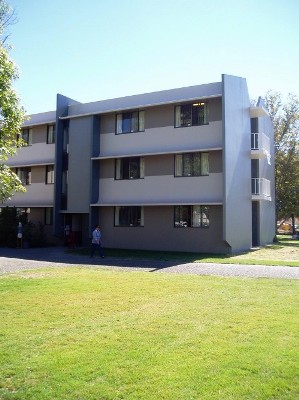Honors History: the Early Years
By Rick Kamins
A month or two before starting my freshman year in 1973, I received a letter in the mail from the UC Davis admissions department (which I later learned was sent randomly to one out of every three incoming freshmen), asking if I wanted to be part of a small program called by the unusual name of "Integrated Studies." If I accepted, I would live in the same dorm with the other students in the program and we would take core courses together the first year. With minimal knowledge of this program, I decided to apply. Like the jump I took decades later when I went skydiving, it was a blind faith leap into unknown territory, praying for a good outcome. Thankfully, both were great life experiences.
Integrated Studies later became the Integrated Studies Honors Program (ISHP), and more recently was renamed and restructured into UCD's University Honors Program (UHP). The concept of the initial program was to demonstrate how seemingly disparate fields such as art, science, and history were actually intimately connected. We took courses from professors who not only provided factual information about the subject material they were teaching, but spent time explaining how Religion, US history, Art, English and Physics impacted one another.

By living together in Tercero B Building, our social lives and classroom lives were also integrated. All my friends in my first year at UC Davis were in the Integrated Studies Program. For me, Integrated Studies turned UC Davis from a large state school into a small liberal arts college. I knew my professors personally; my classes were not lectures, but discourse; and my classmates were my buddies.
Looking for a similar experience to Integrated Studies, I gravitated toward American Studies--another innovative, intimate, and intellectually provocative program. Although my plan upon entering UC Davis was to major in psychology and become a psychologist, I decided without much hesitation to double major in both Psychology and American Studies. I later earned a Ph.D. in Clinical Psychology and became a practicing psychologist. Among other professional activities, for the past 25 years I have taught University of Colorado Psychology Interns a course on Outcome-Oriented Psychotherapy. In the first class of this seminar, I mention to my students that there are over 500 distinct schools of psychotherapy. If we look at the major concepts in helping people change and recover, there are really only about three to four major models of psychotherapy, or what I refer to as paradigms. (Apropos, I learned of the term "paradigm" in Prof. Ken Greider's Integrated Studies class, Introduction to Physics when we read Thomas Kuhn's book, The Structure of Scientific Revolutions.)
Over forty years away from Integrated Studies, its lessons and influence still impact my life--and not just in how I practice my profession. You see, my wife of 34 years, was a fellow Integrated Studies classmate.
